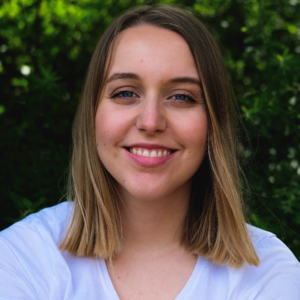In three consecutive labs experts from different fields and backgrounds – algorithmic decision-making, critical race theory, art and political education – worked together. Their tools: feminist policy and zine making, utopian theater, machine learning and speculative design. While developing the educational modules, the teams laughed together, sweated, showed a lot of ambition and perseverance, wrote hundreds of digital notes and learned even more from each other.
Participants
Raziye Buse Çetin
Buse Çetin is an AI policy consultant and researcher, who focuses her work around ethics, impact, and governance of AI systems. By combining her personal life experiences with her interest in postcolonial studies, intersectional feminism and science and technology studies, she develops critical thinking about AI technologies and its impact on society. She currently is a member of the non- profit organization AI Commons, with aims for democratizing access to AI resources, and is working with IEEE SA on AI-driven Innovation for Cities and People to provide cities a governance mechanism to support responsible Artificial Intelligence Systems. Buse Çetin has been selected as one of the 100 Women in AI Ethics in 2020 as well as one of the 35under35 European Leaders by Barcelona Centre for International Affairs (CIDOB).
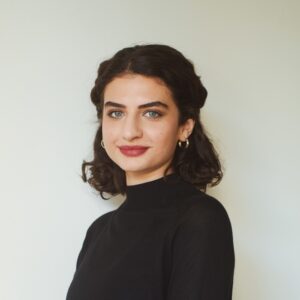
Lia Coleman
Lia Coleman is an artist, AI researcher and educator, whose work revolves around the interplay of art, AI technologies, ethics, and coding. She has a degree in Computer Science from MIT and teaches online workshops on creating AI and AI artworks. In collaboration with the Partnership on AI, she created a field guide for artists to use machine learning in an ethical manner. Lia Coleman currently teaches at RISD as a visiting AI artist and researcher in machine learning art. She writes about AI art as well as new media technology and her artistic and research work has been exhibited in Vancouver, Seattle, NYC, and Boston.
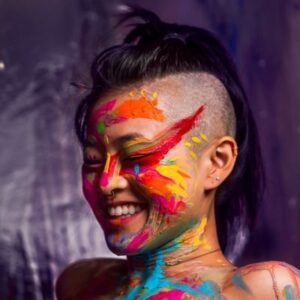
Ed Greve
Ed Greve is an educator and activist, whose work focuses on anti-discrimination, self-determination, participation, and diversity. As a political consultant at the Migrationsrat Berlin e.V., he represents minority issues and concerns as well as doing network and educational work against racism and discrimination. He is a candidate for the Berlin House of Representatives election in 2021, where he is supported by the cooperatively organized political party Brand New Bundestag, that follows progressive, forward-looking politics concerning equality, sustainability, participation, and diversity.
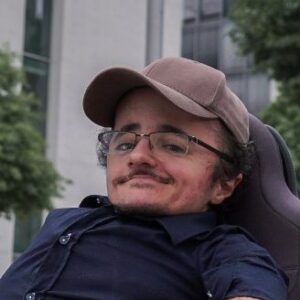
Sarah Fartuun Heinze
As a theatre pedagogue, musician and cultural mediator, Sarah Fartuun Heinze works at the intersection of theatre, games, and music. In her work she focuses on empowerment and developing ideas of utopias to create individual and societal transformational processes. She currently supervises the project UtopienSoundSuche, a digital theatre club at the Oberhausen Theatre, where they produce a digital, interactive radio play around the exploration of utopian thinking to initiate transformational processes. On behalf of the Anne Frank Educational Centre, Sarah Fartuun Heinze works as an author and dramaturge on two serious games around the topic of preventing radicalization online.
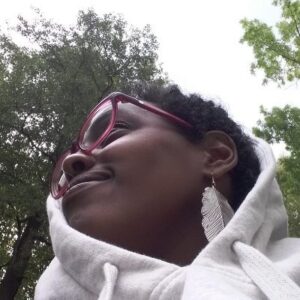
Adriaan Odendaal
Adriaan Odendaal is a multimedia designer and web-developer, whose work revolves around algorithmic literacy, critical and speculative design, digital culture as well as game/software studies. He is a Co-founder of the research and design studio Internet Teapot, a collaboration that focuses on speculative and critical design projects and research, stemming from shared interests in digital culture, critical theory, and the belief that design can be used in a socially transformative way. Adriaan Odendaal has a master’s degree in Media Arts Cultures and currently works as a content writer, designer, and web developer for Open Social and Volume podcasting network.

Nelly Y. Pinkrah
Nelly Y. Pinkrah is a cultural and media theorist and political activist, involved in anti-racist, empowerment, and community-building projects and networks. In addition to writing about racism, gender, and media (&) technology for mainstream media newspapers and magazines, Nelly also gives workshops on these topics. She is working on her doctoral thesis about Édouard Glissant and cybernetics at Leuphana University Lüneburg. Nelly is the assistant to the Chair of Media Theory and History here, and is associated with the Centre for Digital Cultures. She is also currently a lecturer at the Rijksuniversiteit Groningen. From October 2018 to May 2019 she was a Doctoral Fellow at the Global Emergent Media Lab at Concordia University, Montréal. In 2019, she organized the first Stanford Leuphana Summer Academy on Media Studies. Her latest publication is Critique and the Digital, co-edited with Erich Hörl and Lotte Warnsholdt (2020) published by diaphanes Verlag, Zurich and Chicago University Press.
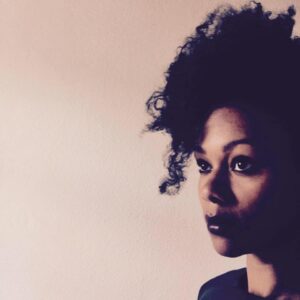
Alexa Steinbrück
Alexa Steinbrück is a software developer, artist, and design researcher, specializing in the development of web applications, websites, and mobile apps with a focus on user interfaces and data visualizations. Her research interests revolve around the representation and perception of AI in public discourse and in consumer products. She has a degree in Artificial Intelligence and runs a lab for Artificial Intelligence & Robotics at the University of Art and Design Burg Giebichenstein where she researches creative applications of AI technologies. She has already worked for the United Nations as a software and design consultant and was part of the data journalism and data visualization project Streetscapes at the German online newspaper ZeitOnline.

Serkan Ünsal
Serkan Ünsal is an educator and activist with a master’s degree in International Migration and Intercultural Relations. He is part of a team that runs the Instagram page @erklaermirmal, an educational format around explaining political terms and topics from a (post)migrant and queer perspective to reinforce accessibility to politics and empower knowledge production. Serkan Ünsal also works at the Education Innovation Lab, a think & do tank committed to a fundamental redesign of education systems by creating educational formats and materials that enable critical thinking and co-creation of a sustainable future.
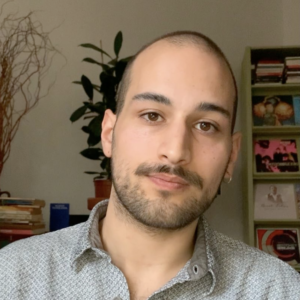
Joana Varon
Brazilian, with Colombian ancestry, and a nomad heart, Joana Varon is a feminist researcher and activist focused on bringing decolonial Latin American perspectives in the search of feminist techno-political frameworks for shaping the development, deployment and usages of technologies. As it is a collective task, she is the Founder Directress and Creative Chaos Catalyst at Coding Rights, a women-run organization working to expose and redress the power imbalances built into technology and its application, particularly those that reinforce gender and North/South inequalities. Believing in art, creativity and coding as tools for revolutions, she is co-creator of several creative projects operating in the interplay between activism, arts and technologies, such as transfeministech.org, museamami.org, chupadados.com, #SaferSisters, Safer Nudes, From Devices to Bodies, protestos.org, Net of Rights and freenetfilm.org. Former Mozilla Media Fellow, she is also currently Technology and Human Right Fellow at the Carr Center for Human Rights Policy from Harvard Kennedy School and affiliated to the Berkman Klein Center for Internet and Society at Harvard University.
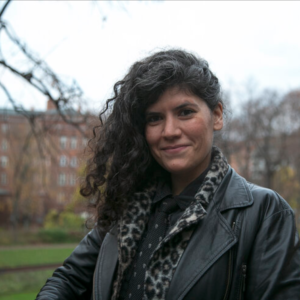
Karla Zavala
Karla Zavala is a researcher, designer and digital project manager, who works at the intersection of software, design, and education. She is a co-founder of the research and design studio Internet Teapot, a collaboration that focuses on speculative and critical design projects and research, stemming from shared interests in digital culture, critical theory, and the belief that design can be used in a socially transformative way. She has a master’s degree in Media Arts Cultures and currently is a PhD candidate at the University of Amsterdam, where she research apps ecology and learning software aimed to young children.
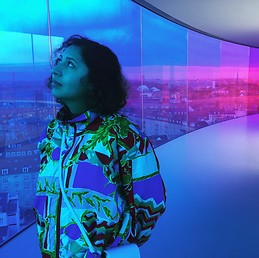
Hosts
Monika Elias
Monika Elias is a research associate at the Grimme Institute in Marl. She works on research projects on big data and digitization in all-day schools and provides editorial support for the web pages of Grimme Forschung and the Grimme Forschungskolleg at the University of Cologne.

Kristin Klein
Kristin Klein is an art educator and research associate at the Institute of Art & Art Theory, University of Cologne. In her research, she focuses on art education in the context of digital cultures, and on possible futures in contemporary art, school development, and educational theory. She co-edited PIAER Texte (since 2020), the anthology Postdigital Landscapes (2019), and the Workbook Arts Education (since 2018). Web: kristin-klein.net
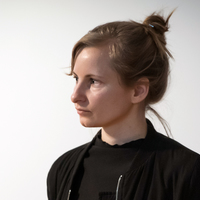
Konstanze Schütze
Bio (she/her) is a curator and art educator. As Junior Professor for ‘Art Media Education’ at University of Cologne she teaches and conducts research in art mediation, media education and media theory. Fields of work and research: art education and media theory with a focus on contemporary art and inter-institutional approaches. She is co-founder & curator of the queer-feminist post-digital performative arts network and collective ‘dgtl fmnsm‘ at digitalfeminism.net. She co-edits the online platforms ‚PIAER.net/texte’ and ‚myow.org – Workbook Arts Education‘ and ‘doing research’.
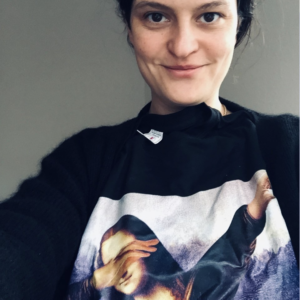
Nushin Isabelle Yazdani
Nushin Isabelle Yazdani is an interaction and transformation designer, artist and AI researcher. In her work, she examines the interconnectedness of digital technologies and social justice, artificial intelligence and discrimination – from an intersectional feminist perspective. Oftentimes she uses speculative design methods, and seeks to explore design processes that dismantle oppressive structures.
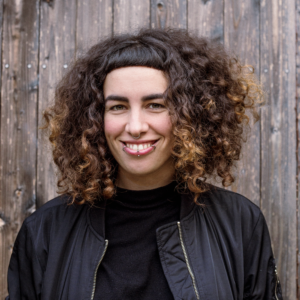
Research Assistance
Caroline Jakob
Carolin Jakob is a Master student at the University of Cologne. She is studying art and biology and moves exploratively on the extended edges of nature/ culture. She is currently writing her master thesis on algorithmic cultures as gatekeepers of the visible in an ecological phenomenology. She is interested in the socio-technical and bio-political aspects of visibility in the context of territorial struggles of representation, control and spectacle. She is a research assistant at the Institute for Art and Art Theory at the University of Cologne and works as freelancer at the Neanderthal Museum.
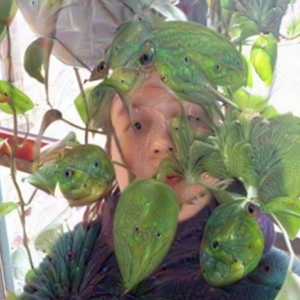
Eva Klein
Eva Klein is studying art, German and educational science for the teaching profession at the University of Cologne. She is currently writing her Masters thesis on the topic of the necessities of collaboration in art education as a practice between singularity and community. Her research also focuses on network theories, situated knowledge and an art education in the context of digital culture as well as anti-discriminatory possibilities of communality. She is a research assistant at the Institute for Art and Art Theory at the University of Cologne and works on the side in a mediation program at the Museum Ludwig in Cologne.

Anna Sprenger
Anna Sprenger is a master student of Intermedia and Media and Cultural Studies at the University of Cologne. Her research focuses on postcolonial theory, the colonial history and coloniality of algorithms and AI systems as well as decolonial practices and approaches to deconstruct those systems. She is a research assistant at the Institute for Art and Art Theory at the University of Cologne and works for different publishing companies as a digital content creator and social media editor.
